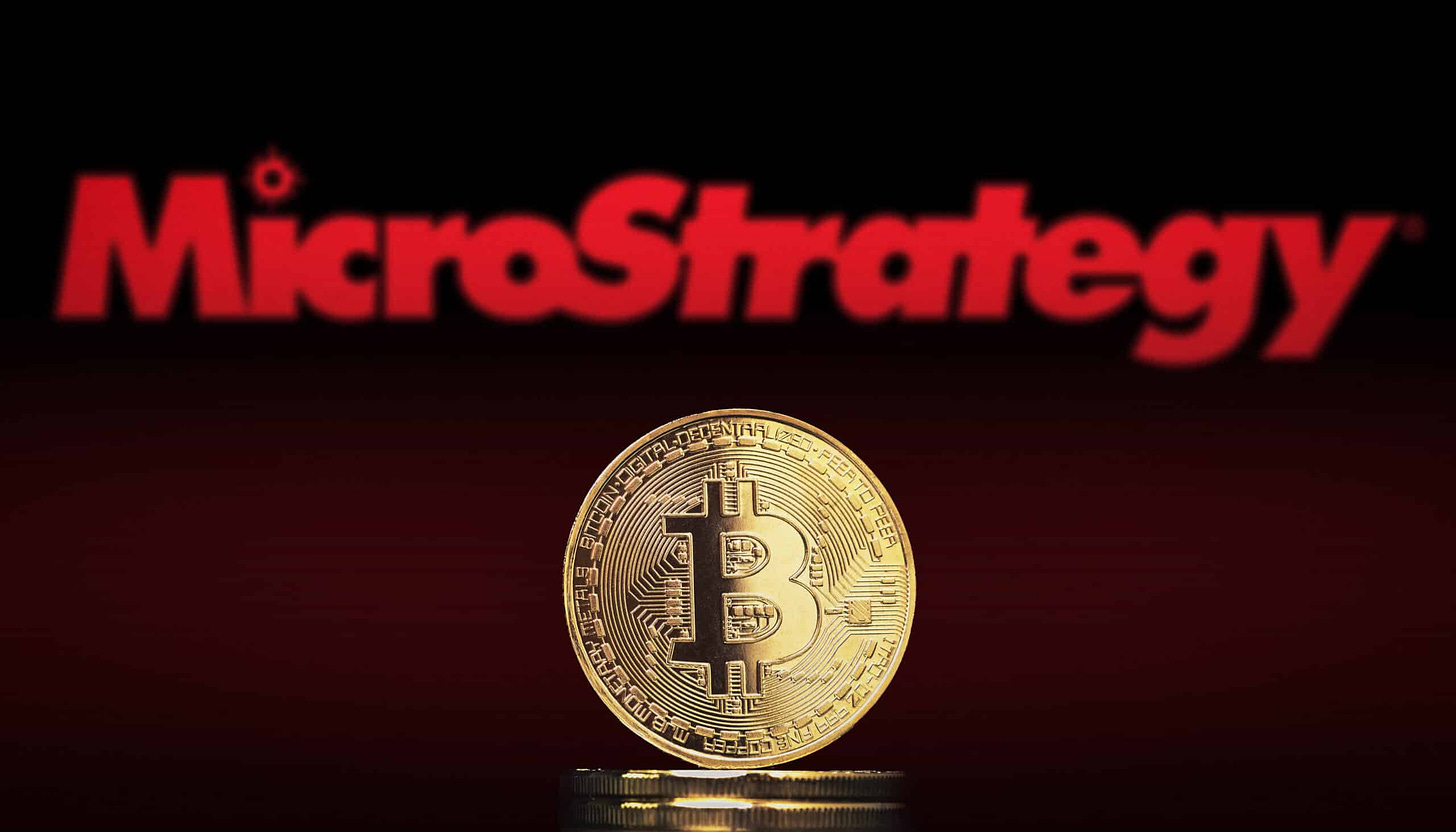Gary Gensler's SEC 'Will Lose' 💥
Weekly News Recap:💸 Marginfi's CEO chuffle, 🔍 Do Kwon found liable, 🕵️♂️ Eisenberg's defense strategy, 📈 Hong Kong's ETF milestone, 📊 Metaplanet's Bitcoin gamble, 🍣 Sushi DAO drama, and more!
You are reading the Unchained Weekly newsletter, where we cover all the major news in the crypto space, providing insights into the market's latest trends, regulatory shifts, and technological advancements. Stay informed with your no-hype resource for all things crypto.
If You Like Unchained: Refer us with a friend and earn a Premium subscription!
This week, the U.S. Securities and Exchange Commission (SEC) issued a Wells notice to Uniswap Labs, suggesting a potential enforcement action is on the horizon for the decentralized exchange (DEX).
On this episode of Unchained, Amanda Tuminelli, Chief Legal Officer at the DeFi Education Fund, provides a detailed analysis of what this move could mean for Uniswap and the broader decentralized finance (DeFi) sector.
Amanda discusses the SEC's approach to regulation, the specific risks facing Uniswap, and the implications of recent legal actions involving DeFi platforms. She also touches on the DeFi Education Fund's recent legal challenge against the SEC's policies on airdrops, underscoring the urgency of a more proactive response to regulatory pressures. Firm in her convictions, Amanda argues, “DeFi is not within the scope of the SEC. And that's why I think in this case with Uniswap, if they file this action, they will lose."
Listen to the episode on Apple Podcasts, Spotify, Fountain, Overcast, Podcast Addict, Pocket Casts, Castbox, Google Podcasts, Amazon Music, or on your favorite podcast platform. Or watch it on YouTube.
Weekly News Recap
Do Kwon Found Liable for Fraud in High-Profile Case
In a landmark decision, Terraform Labs and its co-founder, Do Kwon, were found by a jury civilly liable for orchestrating a multi-billion fraud on investors.
The case, initiated by the U.S. Securities and Exchange Commission (SEC) last year, centered around the dramatic collapse of the algorithmic stablecoin TerraUSD (UST) in May 2022, which erased over $50 billion from the market. The SEC accused Terraform and Kwon of misleading investors through the sale of "crypto asset securities," including false claims about the Terraform blockchain's adoption by a Korean payments company, Chai.
Eisenberg's Defense Claims Legitimate Strategy in Mango Markets Case
The trial of Avraham “Avi” Eisenberg, accused of exploiting Mango Markets, began with his defense insisting that his actions constituted a lawful "winning" trading strategy, not fraud. Eisenberg's lawyer, Sanford Talkin, echoed his client's long-standing assertion that the $110 million profit derived from Mango Markets was the result of legitimate decentralized finance (DeFi) trading. Prosecutors, however, labeled Eisenberg's maneuvers, including alleged artificial inflation of the MANGO token's price and self-trading, as fraudulent and akin to theft.
Read more: The Very Soul of DeFi Is on Trial With the Avi Eisenberg and Uniswap Cases
The case hinges on the interpretation of DeFi trading rules, with Eisenberg's defense highlighting the sector’s inherently risky and speculative nature. Despite federal charges of commodities fraud and manipulation, the defense argues that Eisenberg's actions were in line with the speculative ethos of the DeFi world, where traditional financial regulations struggle to find their footing.
Sam Bankman-Fried Appeals Conviction and Sentence
Former FTX CEO Sam Bankman-Fried has initiated an appeal against both his conviction and sentencing, following his trial's conclusion last month. Bankman-Fried was sentenced to nearly 25 years in prison by Judge Lewis Kaplan of the U.S. District Court for the Southern District of New York after he was found guilty on seven federal criminal counts, including fraud.
The trial’s outcome found that Bankman-Fried defrauded FTX customers, lenders and investors in what prosecutors have described as "likely the largest fraud in the last decade." Despite his defense claiming that FTX's collapse was due to mismanagement, Kaplan highlighted Bankman-Fried's pattern of perjury and conscious wrongdoing.
Marginfi Faces Millions in Outflows as CEO Suddenly Resigns
The decentralized lending platform Marginfi, operating on the Solana blockchain, has booked a significant withdrawal of over $250 million following the resignation of CEO Edgar Pavlovsky. Citing disagreements with the platform's internal and external operations, Pavlovsky's departure has sparked a rapid exodus of funds, with competitor Solend enticing Marginfii users through airdrops to transition assets. Marginfi’s total value locked (TVL) had fallen more than 30% to $655 million on Thursday.
Pavlovsky's resignation in an X post was attributed to personal reasons, as well as unresolved operational disagreements. The situation was further complicated by accusations from Solana staking pool SolBlaze, which criticized Marginfi for mismanaging BLZE rewards tokens earmarked for users, leading to heightened community tensions.
In response, Solend proposed airdrops to users migrating from Marginfi, further accelerating the outflow of funds.
Hong Kong to Unveil Asia's First Spot Bitcoin ETFs
Hong Kong is on the brink of launching Asia's first spot Bitcoin ETFs, with approvals expected next week, according to a Reuters report. The move is set to reinstate Hong Kong's appeal as a global crypto hub, enhancing its competitive edge on the heels of previous challenges stemming from pandemic-era restrictions.
The anticipation builds as the U.S. launch of similar bitcoin ETFs booked a whopping $12 billion in net inflows. With bitcoin's value surging this year, the initiative is backed by applications from notable asset managers, including the Hong Kong units of China Asset Management and Harvest Fund Management.
Metaplanet's Bold Bitcoin Strategy Sparks Stock Surge
Tokyo-based Metaplanet rolled out an audacious plan to prioritize bitcoin as the chief asset on its corporate balance sheet, mirroring MicroStrategy's successful bitcoin investment playbook. This strategy has catapulted Metaplanet's stock by nearly 90% following the disclosure of its intent to invest one billion yen (approximately $6.5 million) in bitcoin, set to become the cornerstone of the company's treasury. Previously a hotel operator, Metaplanet has diversified its business, but its venture into the Web3 consulting space has yet to achieve profitability.
The move to invest heavily in bitcoin is part of a strategic overhaul spearheaded by incoming stakeholders, including Nashville's UTXO Management. The pivot reflects a broader belief in bitcoin's viability as a hedge against inflation, a macroeconomic stabilizer and a vehicle for long-term capital growth. The investment, predominantly backed by investors purchasing stock acquisition rights, signifies a calculated gamble on bitcoin's enduring value and liquidity, particularly against the backdrop of the Japanese yen's depreciation and Japan's economic policies.
Sushi DAO Passes Hotly Debated Treasury Proposal
Sushi DAO passed a contentious proposal to transfer over $40 million in treasury assets to a new vault managed by Sushi Labs, following a community signal vote. Garnering 62.5% approval, the vote sought to move the structural change forward, with an ongoing implementation vote showing a strong leaning towards acceptance.
Criticism has arisen within the community, particularly from SushiSwap Compensation Committee member Naïm Boubziz, who accused the core development team of manipulating the vote by creating new wallets to increase their influence. This proposal marks the first participation of the Sushigov.eth wallet in governance, wielding a substantial voting power that has raised eyebrows.

The shift intends to restructure SushiSwap's governance, transferring decision-making and development responsibilities to Sushi Labs. It aims to streamline operations, quicken product development and ensure Sushi Labs' exclusivity in receiving future airdrops, sparking debate over the centralization of power and the potential sidelining of the DAO's role in governance. Critics argue this could "kill the DAO," undermining the decentralized ethos SushiSwap was built upon.
Solana Community Votes to Enhance Transaction Speed with Timely Vote Credits
Solana has been suffering network congestion lately, and developers are set to implement a new feature, Timely Vote Credits (TVC), aimed at accelerating transaction processing speeds. This initiative, approved by 98.4% of the community, intends to address delays in the validator voting system, reducing network congestion.
The TVC mechanism rewards validators with more credits for faster transaction confirmations, countering the existing loophole that allowed validators to gain extra credits by delaying their participation in consensus.
dYdX Chain Restarts After Brief Interruption for V4 Upgrade
The dYdX decentralized exchange (DEX), known for perpetual futures contracts, experienced a halt lasting over nine hours due to complications during its version 4.0 upgrade. The stoppage, which paused block production for nine hours and 32 minutes, was resolved after the development team implemented a fix for a bug discovered in the upgrade's code. Widely supported by the community, the upgrade aims to enhance the protocol with new features and improvements, including a governance mechanism to penalize validators for misconduct through MEV slashing proposals.
Despite the hiccup, dYdX maintained operational stability, although some users reported transfer issues during the downtime.
EigenLayer and EigenDA Debut on Ethereum Mainnet
EigenLayer, alongside its data-availability service, EigenDA, officially launched on Ethereum mainnet. Before its launch, the service had attracted $12 billion in deposits, highlighting its significant anticipation.
EigenLayer introduces a novel "restaking" mechanism, allowing Ethereum stakers to lend security validations to other protocols, broadening Ethereum's security infrastructure. This move enables a pooled security system, where staked Ethereum can secure various services beyond the original blockchain. EigenLayer’s initial release, though, is more of a beta version with restricted functionalities, including limitations on in-protocol payments, as well as the absence of a slashing mechanism for dishonest validators.










